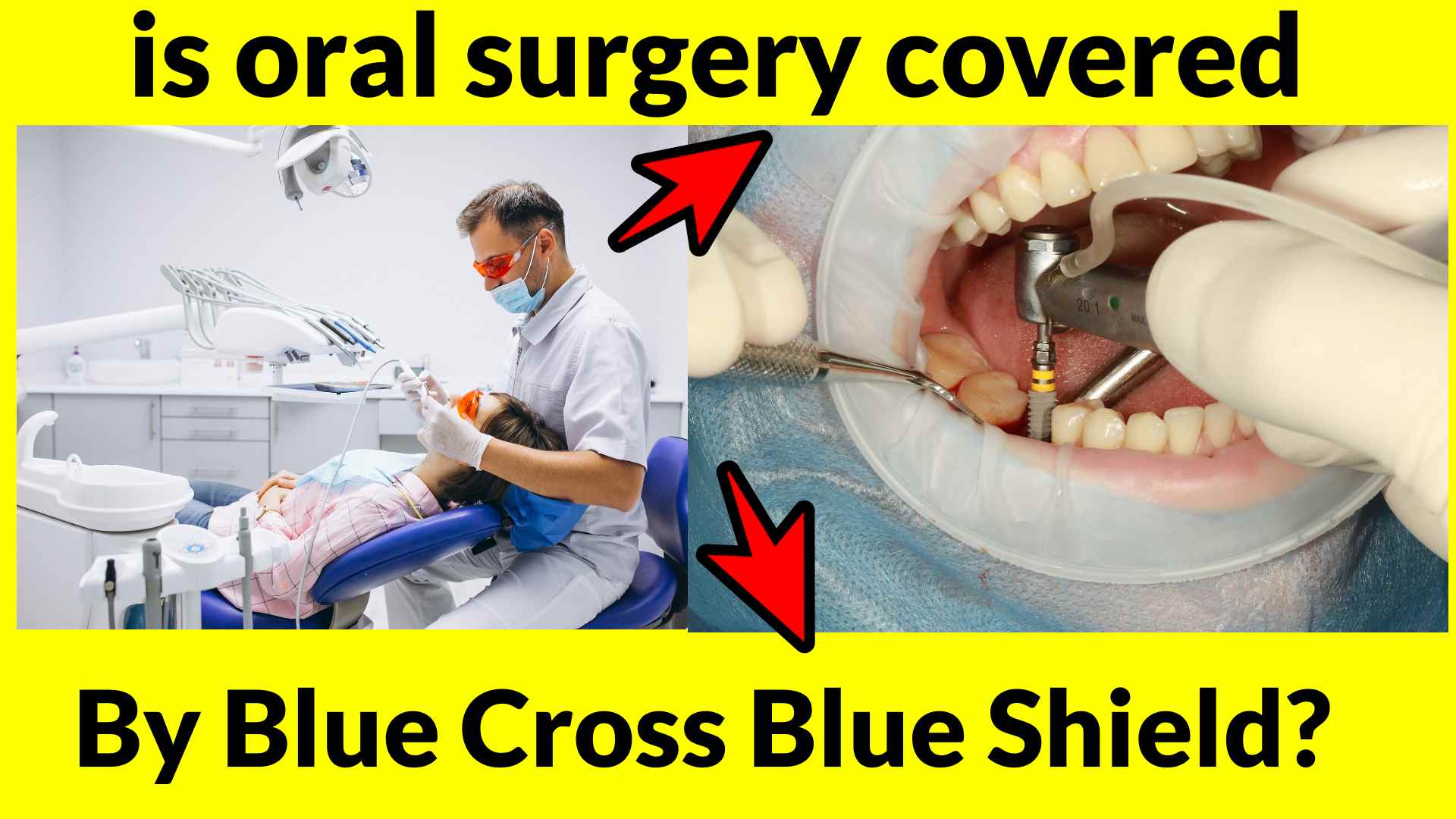Yes, it is covered, but coverage depends on many factors and situations. To learn more, you can check out our article.
What is oral surgery?
Oral surgery is a special treatment for your mouth and jaw. When a dentist performs surgery to correct problems related to your teeth, gums, or jaw, etc.
Some examples of oral surgery are:
- Tooth Extraction: Removal of a tooth due to any reasons like decay, damage, or other dental concerns.
- Wisdom Teeth Removal:
- Dental implant placement: Artificial tooth root foundations are created for the placement of new ones. This gives a strong foundation for the teeth. The implant itself is a small titanium post that is surgically placed into the jawbone in the location of a lost tooth.
- Jaw Surgery (Orthognathic Surgery): jaw surgery is needed to resolve structural, alignment, or functional issues.
- Gum Grafts: Various procedures, such as gum grafts or periodontal surgery, are aimed at treating gum diseases or enhancing gum health.
- Root Canal Surgery: Surgery for the treatment of infections or problems related to the roots of teeth.
- Treatment of Oral Pathologies: Surgical removal or treatment of abnormal growths, cysts, or tumors in the mouth
- Cleft Lip and Palate Repair: Surgeries performed to fix conditions present from birth that impact the upper lip and the roof of the mouth
- Ttemporomandibular joint surgery: Dealing with problems in the jaw joint, Surgeries for the treatment of temporomandibular joint disorders
- Biopsies: taking a small piece of tissue as a sample Doctors often study this sample under a microscope to identify and diagnose diseases. For example, biopsy procedures are applied to detect the presence of cancerous cells.
- etc.
insurance Coverage?
Yes, oral surgery is covered by Blue Cross Blue Shield insurance, but coverage depends on many factors.
Factors on which coverage depends
- Insurance plan: Different insurance plans have different coverage; you need to check the plan coverage documents or policy; if your treatment comes under the policy of your plan, you will get the coverage; otherwise, if your treatment does not come under the policy in your plan that you have, you will not get the coverage. To determine this, review your plan documents or contact Blue Cross.
- Medical necessity: you will often get coverage when the treatment (oral surgeries) is medically necessary. To get coverage, your dentist plays a very important role by supplying the necessary documentation and justifying the medical necessity of the treatment to your insurance company. Medical necessity means that the treatment, like oral surgeries, is really needed for your health. If your dentist or oral surgeon proves the necessity of the treatment, your insurance will likely help cover the costs. So, it’s important for your dentist or oral surgeon to provide the right documents and reasons to your insurance company.
- Pre-authorization: Some insurance companies provide coverage for some treatments only after the pre-authorization process. It is a process of approval from the insurance company, and once approved, they will give you insurance coverage. If not approved, you will not get the coverage. For pre-authorization-related queries, you can contact your healthcare provider.
- In-network providers: if you are going to an in-network provider for your treatment, there are more chances of getting better coverage and lower out-of-pocket costs as compared to an out-of-network provider.
Common Oral Surgeries Covered by Blue Cross
- Tooth Extraction:
- Wisdom Teeth Removal
- Jaw Surgery
Other cost? other than coverage ( out-of-pocket costs)
- Even if your insurance covers oral surgery, you might still have to pay some money yourself. These costs could be things like deductibles, co-pays, or co-insurance. To know exactly what you might have to pay, it’s a good idea to look at your insurance plan and see what your financial responsibilities are.
Process for getting Coverage for Oral Surgeries
- Review your insurance plan documents.
- Understand policy terms.
- Review Cost-sharing Details of your plan: Understand your financial responsibilities, including deductibles, co-pays, and co-insurance. You can get a rough idea of out-of-pocket costs.
- Contact your insurance provider (Blue Cross Blue Shield).
- Consider in-network dental providers: out-of-pocket costs will be smaller, and there is a greater chance of getting better coverage as compared to out-of-network providers.
- Consult with your dentist or oral surgeon
- Pre-authorization requirements: Some insurance plans require pre-authorization for certain treatments, including oral surgeries. The work of pre-authorization is the responsibility of your dentist. You can contact your dentist for pre-authorization; if it is needed, they will start the process.
- Medically Necessary Procedures: Insurance providers typically offer coverage without any hesitation for procedures that are medically necessary.
- Appeal Process: Insurance companies sometimes make mistakes. In the case of denied coverage, you can also appeal if you believe your claim was wrongly denied.
Conclusion
Oral surgery is covered by Blue Cross medical insurance; if your plans have coverage for it, you will get coverage. However, coverage depends on many factors. Carefully review your policy and consult with your insurance provider and dentist about claiming insurance.
